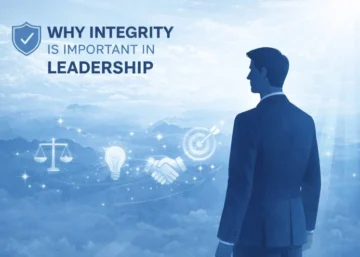
No matter the industry or title, every leader eventually faces it: a moment when the stakes are high, the answers are unclear, and the pressure is relentless. Whether through economic instability, organizational change, public scrutiny, or sudden disruption, crises don’t make appointments.
And when they strike, leaders are expected to have the answers, rally the troops, and keep everything afloat.
But here’s the truth: the most effective leaders don’t just manage crises. They lead through them by staying resilient, grounded, and human.
What Is Resilience in Leadership?
Resilience isn’t about being unaffected by stress. It’s not about “toughing it out” or projecting invincibility. True leadership resilience is the ability to remain centered, make wise decisions, and lead with empathy even when everything around you is uncertain.
Resilience is a muscle, not a trait. It can be built. It can be strengthened. And in times of crisis, it often becomes a leader’s most valuable asset.
The Core Principles of Resilient Leadership

Whether coaching Fortune 500 executives or next-generation leaders, we’ve found that resilience comes down to a few key practices:
1. Stay Grounded in Purpose
In the midst of chaos, purpose provides an anchor. Resilient leaders return to why their work matters to their people, mission, and values. Purpose brings clarity when circumstances don’t.
2. Communicate Transparently, Even Without All the Answers
Uncertainty can breed fear, but silence breeds more. Leaders who are honest about what they know, what they don’t, and what they’re doing to figure it out, foster trust, even in ambiguity.
3. Regulate Your Own Emotional State
Your team will mirror your energy. If you’re reactive, so are they. If you’re composed, they gain stability. Emotional intelligence (a cornerstone of our executive coaching approach) is critical here because how you show up is as important as what you say.
4. Empower Others – Don’t Try to Do It All
In a crisis, the temptation is to tighten control. But great leaders delegate wisely, listen actively, and trust their teams. Resilience isn’t about carrying the weight alone. It’s about building collective strength.
5. Make Space for Reflection
Even in fast-moving situations, resilient leaders pause. They take time to assess, reset, and make intentional decisions. Reflection isn’t a luxury but a leadership discipline.
A Crisis Revealed - Disney Buys Fox!

We were in a large meeting at Fox in December 2017 when, suddenly, all of our phones began vibrating. The headline: “Disney to Buy Fox!”
What does this mean? Can this be true? Wild speculation permeated the halls. We were immediately thrown into crisis mode.
The acquisition took 1-½ years to complete. During that time, one Fox leader stood out from all the rest: Peter Rice. I say this not only from my own observations, but also as a result of innumerable comments I have heard from members of his team.
Peter didn’t know how the acquisition would pan out for him or his team, but that didn’t diminish his leadership presence. Peter held regular town hall meetings, answered the questions he could, and was honest about the ones he couldn’t. There were no guarantees for his future or the future of his team, but Peter promised to keep them informed, and encouraged them to continue their path of producing and distributing amazing content. He was right by their side letting them all know that they were on this journey together, and continually reminded them of how much they meant to him and the company.
When the transaction was complete, virtually all of his team stepped into their roles at Disney and continued to thrive, and were forever grateful for Peter’s resilient leadership in a time of crisis.
The Role of Executive Coaching in Crisis Leadership

In a crisis, leaders need more than strategic advice. They need clarity, emotional regulation, and a strong inner compass.
This is where executive coaching becomes invaluable. At Hallett Leadership, we walk alongside leaders as thought partners during periods of change, challenge, or crisis. We provide a confidential space to reflect, reframe, and regain focus, helping leaders stay aligned with their values and lead with intention, not reactivity.
Many leaders come to coaching with this question: “How do I lead when I don’t feel certain myself?”
The answer begins with self-awareness, emotional agility, and the willingness to lead not with perfection, but with presence.
Crisis Is a Test and an Opportunity
Moments of crisis reveal a leader’s core. But they also create the conditions for profound growth. Organizations will remember how their leaders showed up when it mattered most, not just in outcomes, but in human impact.
And the leaders who rise? They’re not the ones who had all the answers. They’re the ones who could remain resilient, lead with empathy, and guide their teams with courage and clarity.




